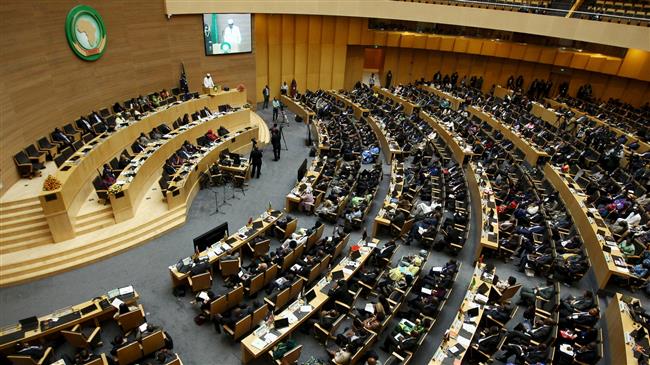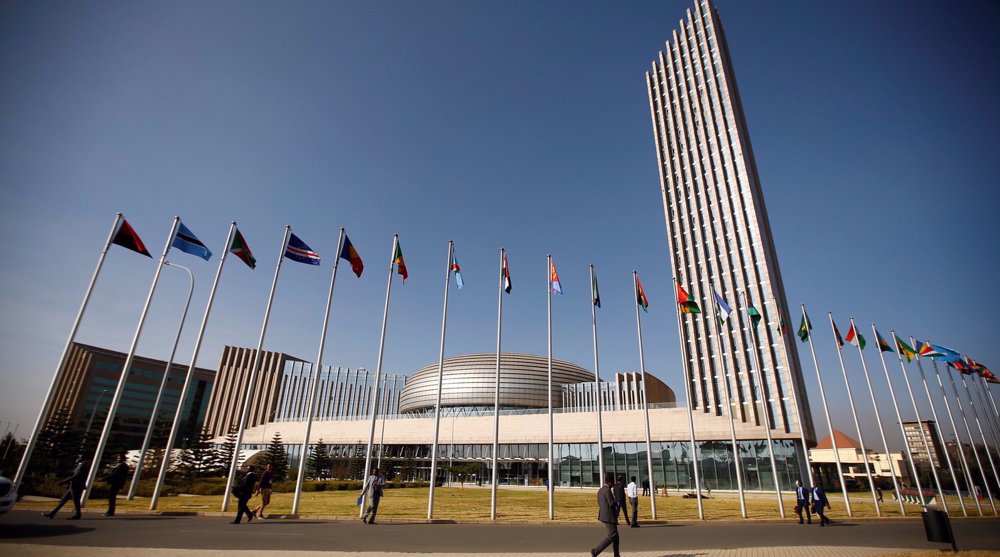Seven African Arab-speaking states have rejected a recent decision by the African Union (AU) Commission to grant the Israeli regime an observer status at the continental body.
Several Arab media outlets, including London-based al-Araby Al-Jadeed, reported that the embassies of Algeria, Egypt, Comoros, Tunisia, Djibouti, Mauritania and Libya in Ethiopia had sent a letter of protest to Moussa Faki Mahamat, chairman of the African Union Commission, objecting to the measure.
They said the decision to grant Israel observer status at the AU contradicts the African bloc’s support for the Palestinian cause and its other principles.
The countries condemned the step as “unacceptable” and an act of political abuse by the AU Commission’s chairman of his executive authority.
The seven African Arab states also requested that the issue be put up for discussion at the AU’s next foreign ministerial meeting, which is due to be held in October.
The London-based online newspaper Rai al-Youm reported that Algeria has officially begun the process of forming a group of African countries to oppose Tel Aviv’s membership in the African Union in order to preserve the principles of the union and to support Palestine.
According to the report, South Africa, Tunisia, Eritrea, Senegal, Tanzania, Niger, Comoros, Gabon, Nigeria, Zimbabwe, Liberia, Mali and Seychelles are the countries that have agreed to expel Israel from the 55-member African Union.
Algerian Foreign Minister Ramtane Lamamra has stressed that his country would not stand idly by the African Union’s move which was taken without any consultation with its member states.
Namibia joined South Africa and several continental civil society groups on July 29 to reject the African Union Commission’s recent decision to grant Israel observer status at the regional body.
“Granting observer status to an occupying power is contrary to the principles and objectives of the Constitutive Act of the African Union,” Penda Naanda, executive director of Namibia’s Ministry of International Relations and Cooperation, said in a statement.
Naanda said it was wrong to grant Israel observer status, particularly at a time when the regime is increasing its acts of oppression in total violation of international law and disregard for the human rights of the Palestinian people.
He also said the AU Commission’s decision was against the usual firm and solid commitments made by several African heads of state and government who unequivocally support the Palestinian cause.
“Namibia therefore disassociates itself from granting observer status to Israel,” it said.
The southern African nation said Israel can only be granted observer status at the AU on the condition that it ceases to occupy Palestine and grants the Palestinian people the right to self-determination.
On July 22, Israel attained observer status at the AU after nearly 20 years of lobbying.
Israel previously held observer status in the predecessor Organization of African Unity until 2002, when the organization was disbanded and replaced by the AU.
Pro-Palestine language is typically featured in statements delivered at the AU’s annual summits.
Palestine already has observer status at the African Union.
News Agencies



